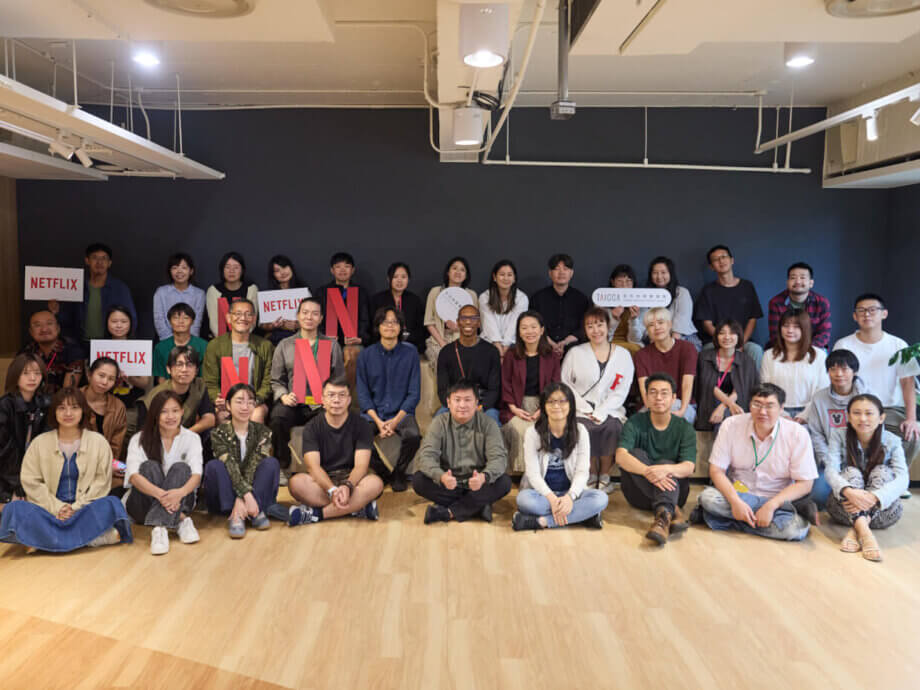Netflix’s New Talent Cultivation Program: A Strategic Investment in Taiwan’s Creative Future
Netflix, the global video streaming giant, has announced a major new initiative in Taiwan: a talent cultivation program designed to nurture the next generation of Mandarin-language content creators. This move is part of Netflix’s broader strategy to invest in local talent, foster high-quality original productions, and strengthen its position in the competitive Asian streaming market. The program, which includes intensive scriptwriting and production training, is set to play a pivotal role in shaping the future of Taiwan’s film and television industry.
- Netflix’s New Talent Cultivation Program: A Strategic Investment in Taiwan’s Creative Future
- Why Taiwan? The Island’s Rising Role in Global Content
- Inside the Talent Cultivation Program: Training the Next Generation
- Building an Ecosystem: The Netflix Fund for Creative Equity
- Local Stories, Global Impact: The Power of Mandarin Content
- Collaboration and Industry Development: The Role of TAICCA and International Partners
- Changing the Narrative: New Opportunities for Taiwanese Creators
- Broader Implications: What This Means for the Asian Streaming Market
- In Summary
Why Taiwan? The Island’s Rising Role in Global Content
Taiwan has emerged as a creative powerhouse in the Mandarin-speaking world, producing acclaimed films and series that resonate both locally and internationally. The island’s unique blend of cultural diversity, storytelling traditions, and technical expertise has made it an attractive hub for global streaming platforms seeking fresh, authentic voices. Netflix’s decision to deepen its investment in Taiwan reflects the island’s growing influence and the increasing demand for Mandarin-language content worldwide.
Since launching its service in Taiwan in 2016, Netflix has steadily increased its support for local productions. The company’s collaborations with the Taiwan Creative Content Agency (TAICCA) and other industry partners have already yielded a string of successful projects, such as the hit series “Copycat Killer” and the internationally recognized “Light the Night.” These successes have demonstrated the global appeal of Taiwanese stories and the potential for local creators to reach audiences far beyond their home market.
Inside the Talent Cultivation Program: Training the Next Generation
The newly announced program is multifaceted, targeting both aspiring scriptwriters and production trainees. At its core is a five-month intensive scriptwriting course, co-developed with the local production company Yiyi Pictures. This course aims to train scriptwriter assistants in the “writers’ room” model—a collaborative approach to script development that is standard in Western television but still relatively new in Asia.
Participants will learn not only the craft of scriptwriting but also how to pitch ideas, work as part of a creative team, and navigate the complexities of the content production industry. The program is open for applications on the Netflix website until July 24, with the course running from September 15 to February 13 of the following year.
In addition to scriptwriting, Netflix is partnering with the Film and Television Production Association of Taiwan to offer a two-day course for production trainees. While the classroom component is brief, participants will have the opportunity to apprentice on real productions, gaining hands-on experience that is crucial for building a sustainable career in the industry. Applications for this track are open until July 13, and the duration of internships will depend on the schedules of partner production crews.
Building an Ecosystem: The Netflix Fund for Creative Equity
This talent cultivation initiative is part of a larger commitment by Netflix to foster diversity and professional development in the entertainment industry. In 2021, Netflix launched the Fund for Creative Equity, pledging $100 million over five years to support underrepresented communities and enhance creative pathways across the Asia-Pacific region and beyond.
According to Minyoung Kim, Netflix’s Vice President of APAC Content, the fund has already supported over 200 programs in more than 50 countries, benefiting more than 13,000 participants. In Taiwan, the fund has enabled screenwriting workshops, production training, and partnerships with local agencies like TAICCA. These efforts are designed to address skill gaps, transfer technical knowledge, and raise the overall quality of local productions.
Local Stories, Global Impact: The Power of Mandarin Content
Netflix’s focus on Mandarin-language content is not just about language—it’s about culture, history, and the unique perspectives that Taiwanese creators bring to the screen. Maya Huang, Netflix’s head of Chinese Language Content, emphasized the importance of telling stories that resonate with local audiences while also appealing to viewers across Asia and around the world.
Recent Netflix originals such as “Born for the Spotlight”—a series featuring acclaimed Taiwanese actresses Hsieh Ying-xuan and Cheryl Yang—highlight the platform’s commitment to bold, innovative storytelling. Written and directed by Yen Yi-wen, the show explores the competitive world of entertainment and the evolving roles of women in the industry. It is set to premiere at the Busan International Film Festival before its global release on Netflix.
Huang explained the company’s approach:
“What we are looking for is really to have stories that will first and foremost resonate with our local audience, which is in Taiwan. When we talk about Chinese language content, we are not talking about a diaspora all over the world—we are more focused on Taiwan and then the APAC regional audience. Because it’s not just the language that we share, there’s also the cultural part, the history that we share.”
This focus on authenticity and local relevance has helped Taiwanese productions find success both at home and abroad. The adaptation of the Japanese novel “Copycat Killer” into a Taiwanese context, for example, demonstrated the ability of local creators to reinterpret global stories in ways that connect with diverse audiences.
Collaboration and Industry Development: The Role of TAICCA and International Partners
Netflix’s efforts in Taiwan are closely linked to its partnership with the Taiwan Creative Content Agency (TAICCA), a government-backed organization dedicated to promoting Taiwanese culture and creative industries. Together, they have signed a memorandum of understanding to deepen cooperation, share resources, and bring more Taiwanese stories to the international stage.
TAICCA’s CEO, Izero Lee, has highlighted the importance of such collaborations in helping local talent compete in the global market. The agency has also partnered with international companies like Imagine Entertainment to launch programs such as Emerge, which supports Taiwanese writers, directors, and producers in developing original series for global distribution. These initiatives are designed to equip creators with the skills and networks needed to succeed in an increasingly competitive and interconnected industry.
TAICCA’s director, Ming-che Lee, noted:
“Taiwan, with its rich cultural diversity, has developed a wealth of story material and outstanding industry talent. This makes it the first choice for international teams seeking to collaborate on audiovisual projects in Asia.”
Such partnerships not only bring international expertise and resources to Taiwan but also help raise the profile of Taiwanese content on the world stage. Recent successes at major film festivals and awards ceremonies have further boosted confidence in the island’s creative potential.
Changing the Narrative: New Opportunities for Taiwanese Creators
The landscape of Taiwanese film and television has evolved rapidly in recent years. Where once the industry was dominated by formulaic romantic dramas, today’s creators are exploring a wider range of genres, themes, and storytelling techniques. This shift has been driven in part by changing audience tastes and the influence of global streaming platforms like Netflix, which encourage experimentation and innovation.
Yen Yi-wen, writer-director of “Born for the Spotlight,” reflected on these changes:
“In the past, actresses didn’t have many options for roles and about four to five years ago, when I was around 40, I was thinking about whether there was an age limit for certain roles. I decided to write my own story about a middle-aged woman, so that I can tell stories that I want to see.”
Producer Olive Ting added:
“Artistic shifts have coincided with social changes in Taiwan. We are excited that there are so many options now and we don’t have to follow traditional storylines. We are grateful that viewers in Taiwan are open to different stories and genres, which allows us to explore more ambitious projects.”
This openness to new ideas and formats is creating opportunities for a new generation of writers, directors, and producers. By providing training, mentorship, and access to international networks, Netflix’s talent cultivation program aims to accelerate this transformation and ensure that Taiwanese creators can compete on a global stage.
Broader Implications: What This Means for the Asian Streaming Market
Netflix’s investment in Taiwan is part of a larger trend among global streaming platforms to localize content and tap into regional talent pools. As competition intensifies in Asia, companies are seeking to differentiate themselves by offering original productions that reflect the unique cultures and experiences of their target audiences.
The success of Korean dramas, Japanese anime, and now Taiwanese series on global platforms has demonstrated the universal appeal of well-crafted local stories. By nurturing talent and supporting the development of high-quality Mandarin content, Netflix is positioning itself to capture a larger share of the rapidly growing Asian streaming market.
Moreover, these initiatives have the potential to drive broader industry development, create jobs, and boost the international visibility of Taiwan’s creative sector. As more local creators gain experience and exposure, the island is likely to become an even more important player in the global entertainment landscape.
In Summary
- Netflix has launched a comprehensive talent cultivation program in Taiwan to support the development of high-quality Mandarin-language content.
- The program includes a five-month scriptwriting course and production training, with opportunities for hands-on experience and mentorship.
- This initiative is part of Netflix’s broader commitment to creative equity and local industry development, supported by the $100 million Fund for Creative Equity.
- Partnerships with local agencies like TAICCA and international companies are helping to raise the profile of Taiwanese content and equip creators for global success.
- The program reflects broader trends in the Asian streaming market, where local stories and talent are increasingly driving growth and innovation.
- By investing in Taiwan’s creative ecosystem, Netflix is helping to shape the future of Mandarin-language entertainment and expand opportunities for local creators.












